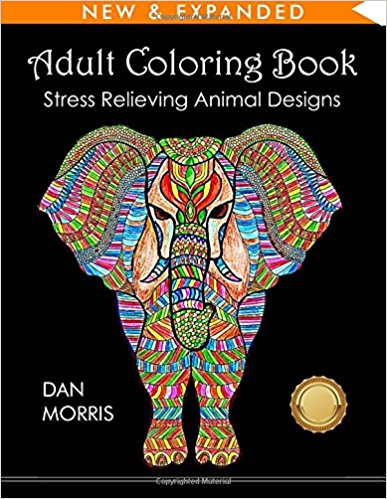If you want to make the most of your workday and get noticed for your bright energy and powerful productivity, you will need an edge. For many entrepreneurs and startup workers, creative thinking is a premium. Creative thinking allows for quick and effective problem solving, strong organizational habits, eye-catching design and branding decisions, and quick-witted social skills. Entrepreneurs could use this kind of creativity in their staffing, since it’s helpful to have employees who can wear a few hats at once as the company gets off the ground.
Workweek exhaustion can wear down this edge, however, causing mental focus and brain activity to slow. In this case, workers begin to use their creative resources to dream of being somewhere else rather than problem-solving in the workplace.
Increased brain activity and alertness can help bring back that focus. Here are just a few tips that can be practiced outside of work to foster brain activity and quick connections, so that when you are in the workplace, you can be on your game.
Cardiovascular Exercises
Contemporary workplace designs will often make provisions for the body’s movement. Some workplaces have banks of standing desks, exercise and yoga balls to help with creative thinking, and sometimes even a treadmill right in the office space.
The more you’re moving around, the more your blood is pumping, and increased circulation will go a long way toward kick-starting your brain. This allows for quicker ideas, better brainstorming, and quicker connections.
While runner’s euphoria tends to be a favorite way for many people to get their blood pumping, even just going for a walk in the fresh air can get your blood moving. Walking around town and taking in different people and places can help to form associations and jog your memory and thinking reflexes.
Crossword Puzzles
The old-fashioned but not-so-humble crossword puzzle is known to relieve stress and increase thinking and speaking speeds. Not to mention, these are often recommended for Alzheimer’s prevention.
Crossword puzzles force you to make connections between clues that you wouldn’t normally think about in your everyday life. Crossword clues will often ask you to find similar words for the same things. This not only gets you thinking about language and word-association, but it also helps you to keep your verbal skills active.
Sudoku
The benefits of Sudoku are similar to that of doing crossword puzzles, except that instead of boosting word association, Sudoku is a logical and pattern-based puzzle. Working through Sudoku puzzles helps enhance logical thinking and spatial thinking skills. Memory and logic go hand-in-hand, so while you are upping your logic skills, you are also improving your memory. Sudoku helps you develop your sense of time, for better time management and quicker decision-making. These puzzles can also provide a sense of accomplishment and stress relief.
Listening to Music
Listening to music can have numerous powerful effects on your brain, from deep relaxation to memory-triggering nostalgia. If you’ve ever asked yourself why it is so much easier for you to memorize song lyrics than to memorize other key phrases and terms, then you are encountering one of the reasons that listening to music is good for your brain.
As you brain captures musical patterns and motifs, it turns them into connection points of logical thinking, i.e., pattern retention, emotional understanding, and verbal reasoning. When you are listening intently to a complex song or piece of music, you can engage most of your brain. Listening to music in this way can be a great way to relax after work, or an energizing way to begin your pre-work morning routine.
Mindfulness Meditation
Mindfulness meditation not only lowers stress but if practiced over a long period of time, it can actually shrink the amygdala, which is the brain’s fight-or-flight center, responsible for how we approach stress. Mindfulness meditation is the practice of focusing on one thing, usually one’s breath, for a long period of time. As their mind wanders, it is best to note its patterns and then pull it back to its original focus.
Meditation helps increase focus and memory. In addition, the long-term stress relief allows for better decision making. Decisions, in this case, do not take into account stress levels, so that the mind is able to choose between options according to each option’s best utility.
To-Do Lists
Putting together a list of prioritized tasks is another measure that will allow the mind to relax during your time away from work. By allowing your mind to know what it does and does not need to be thinking about, you free it up to think of other things or simply live in the moment.
While your mind is responsible for always telling you that you need to remember to do something, it will be difficult to put your full focus into something else. This constant mental reminder increases stress and the immediacy of possible work-related problems in your downtime. Once you have put your tasks into a list, your mind can rest easy.
Adult Coloring Books
Adult coloring books have been circulating the trending web for their ability to reduce stress with focused and colorful fun. Most people who regularly practice an art know it to be an outlet for emotions as well as creative intelligence. Adult coloring books can be a great gateway to this same sort of stress relief and creative intelligence. Some of the most popular books that are available are from creators such as Dan Morris and Cherina Kohey.
Coloring teaches you to look at and learn to intuit shade and tone. Learning to pay attention to light and shade dynamics can help you pay attention to the world around you more and see it with an increased understanding of depth, color, and creative design.
Whatever you do outside of work, chances are you’re enhancing some aspect of your emotional, physical, creative, or analytical intelligence. These outside-of-work activities will allow you to expand how you think in a variety of ways. Building these powerful new thinking skills help you out with stress-free decision-making and problem-solving.














Pingback: How to Use Psychological Capital to Improve Work Performance - StartUp Mindset